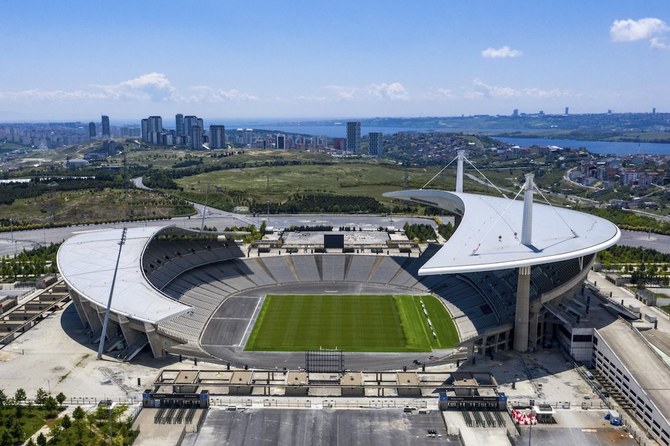ISTANBUL: Istanbul has launched its bid to host the 2036 Summer Olympics and Paralympics.
If approved, Turkey will become the first Muslim-majority nation to host the event.
“To ensure that Istanbul gets its deserved place on the world sports map, we are focusing on this chief goal,” the city’s mayor and former amateur soccer player Ekrem Imamoglu said on Tuesday in a press briefing.
“We put forward our will, and on behalf of Istanbul and Turkish people, we want to host the Olympics and Paralympic Games in Istanbul.”
The same day, Imamoglu launched Istanbul’s new sports vision and future plan, and called on all relevant institutions in Turkey to join forces with the municipality. “Let’s make this happen!” he tweeted.
The mayor is now focusing on improving the transportation and sports infrastructure of the city and has called on the private sector and big sports clubs, such as Fenerbahce, Galatasaray, and Besiktas, to cooperate with him.
Istanbul will compete against several European, Middle Eastern and South American cities, including London and India’s Ahmedabad, which are also seeking to host the games.
This year’s Tokyo 2020 Olympics, to be held from July 23 to Aug. 8, will host more than 100 Turkish athletes who will compete across 18 branches.
Fifty women athletes will represent the country, the highest level of female representation from Turkey since London 2012.
Istanbul, a city of 16.5 million, boasts eight stadiums, 52 sports facilities having 25 pools, 42 fitness saloons, 44 tennis courts, 41 football courts, one athletics track and two ice rinks. These facilities provide children with training in 15 different sporting branches.
The Ipsos Global Advisor survey, conducted between May 21 and June 4, with more than 19,000 adults across 28 countries, revealed that Turkish respondents expressed the most support for the Olympics, with 71 percent saying they thought holding the Tokyo Games despite the pandemic is the right move.
“Countries that are willing to host the Olympics are also required to increase their capacity in the Paralympics. Therefore, hosting these events requires accessible infrastructure in a host city,” Mert Yasar, a lawyer specialized in sports law, told Arab News.
Turkey, home to about 5 million disabled citizens, would need to improve accessibility for the disabled, such as increasing the number of smoothly functioning elevators and escalators at the metro stations, installing ramps that conform to global standards, ensuring wheelchair access in all venues, and expanding routing signs.
“Now, the disabled residents of the city face problems in using public transportation as they are still not completely disabled-friendly. The foremost advantage of hosting the Olympics will be to provide Istanbul with modern and sustainable infrastructure for people with disabilities while cultivating nationwide respect and understanding for them,” Yasar said.
Ensuring an accessible environment and standards is part of the Host City Contract that is awarded by the International Olympic Committee.
Yasar warned that the Olympics can be extremely expensive to host, with costs increasing to $45 billion for Beijing in 2008.
This financial burden can weaken enthusiasm for hosting the games. However, according to Yasar, cities are eager to host the Olympics because it becomes a soft power opportunity for them to attract attention and reveal their cultural appeal.
“However, if Istanbul is serious with this bid, it should engage in social activities to boost a popular culture for the Olympics. Although people support hosting the games, they should also be encouraged to buy tickets and attend them. If not, the Olympics can also bring a serious economic burden to the urban economy as it turned out to be the case in Japan during the pandemic,” he said.




























